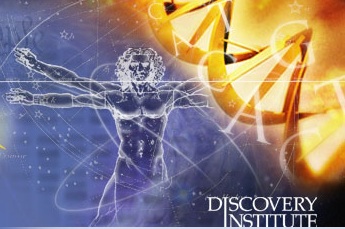This two-part series on Intelligent Design, in part a response to our ongoing discussions about evolution, is by Logan Paul Gage, a policy analyst at the Discovery Institute and who has written extensively on evolution.
Intelligent Design and the Artist’s Soul, in Three Acts
 In his
In his
article “Five Streams of the Emerging Church,” Scot McKnight identifies
with Eddie Gibbs and Ryan Bolger’s description of emerging Christians.
One of the nine hallmarks of such Christians, according to the authors,
is that they “create as created beings.” And it is this theme I would
like to explore with reference to Darwinian evolution and intelligent
design (ID) in a series of two posts. We will consider how to
consider ID, assess conceptions of God in this debate, and we will reflect upon aesthetics and Darwinian theory.
What to make of intelligent design?
Questions for our readers: What do you make of intelligent design? How do you define it? Do you think we have too often used sloppy definitions of it?
Years ago, before I had heard of Neil Postman, before I had given much thought to the role pictures play in our mental life, I read Edward Larson’s Pulitzer Prize-winning Summer for the Gods. Upon putting it down, I was struck by one simple fact: Everything I thought I knew about The Scopes Monkey Trial of 1925 ‘just ain’t so.’
With reflection, the disturbing fact emerged that I had absorbed the black-and-white images of “Inherit the Wind.” Sure, I knew it was a play. Yet apparently the part of my brain overseeing history is not divorced from the part processing art. Plato was right. Art can be dangerous, for it provides a window into the soul.
The same cautionary tale applies to the Christian in the case of ID. We had better be careful that we assess facts, evidence, and narrative carefully rather than absorbing the assessments of our secular peers by osmosis.
It is impossible for the thinking Christian to put down all the invisible cultural baggage he or she carries–both Christian and secular narratives–in order to consider ID’s claims on their own terms. But we can try to clear confusion. So let’s start with what ID is and is not. Contrary to popular assumptions, ID is not Biblical creationism. It does not get into the recesses of Old Testament exegesis, nor is it meant to reveal the full nature of God.
ID is more modest, asking a simple question: When all of the scientific (not religious) evidence is put on the table, are certain features of nature better explained by an intelligent cause or by unintelligent causes like natural selection?
Now where does the artist fit in? Well, let’s put down our culture war armor for a moment. Let’s drop the usual visuals. We are not dealing with men in white lab coats versus backwoods basement Bible-thumpers. My friends in the ID movement have doctorates from Cambridge, The University of Chicago, University of Pennsylvania, CalTech, etc. They’ve done post-docs at Columbia, Harvard, and other major institutions. So let us re-imagine the narrative for a minute, wipe away the horizion, you and me.
Let us see the ID theorist the way we see an art historian at The Smithsonian who has just received a heretofore lost and unsigned Renaissance masterpiece. She must do some detective work. Are there not systematic and scientific ways for the art historian to learn about the cause(s) of this painting?
I propose that this is the way we should view the ID theorist. Returning to nature, in this view we see the ID theorist looking for positive signs of intelligent design and running tests to see if mere material causes are adequate to explain the artifact. In the case of the painting, material causes will never be adequate. Perhaps nature is like this, too. We should not judge this a priori. This is not a question of proving God’s existence or of Biblical fundamentalism. This is about what sorts of causes are necessary to explain certain features of nature. The emerging Christian knows God is the ultimate author of nature, so perhaps this will be scientifically detectable, or perhaps it will not. We should encourage scientists to find out.
The sensitive-souled Christian will not let the Scopes narrative–and the charge that consideration of design in nature is somehow anti-intellectual–get in the way this legitimate pursuit for the causes of natural phenomena.
Next week we will look at God and Beauty in light of Intelligent Design.

